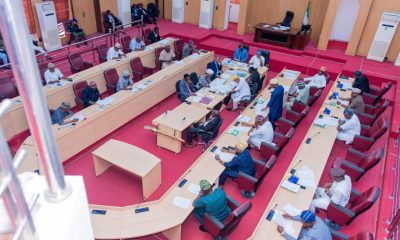News
Insecurity: Avoid Some Areas In NIGERIA, Canada Warns Its Citizens

The Canadian government has warned its citizens not to travel to virtually all parts of Nigeria, due to worsening security challenges bedeviling the most populous African country.
In a statement, Canada, on Tuesday, gave the caution titled “Nigeria Travel Advice” on its website.
The North American country cited reasons of terrorism, armed attacks, kidnapping, and crime among other depravities as reasons Canadians should shun Nigeria as a tourism destination.
While it listed Adamawa, Bauchi, Borno, Gombe, Jigawa, Kaduna, Kano, Katsina, Sokoto, Zamfara and Yobe states for hotbeds of terrorism, banditry and kidnapping, Lagos, Abuja and Calabar, the capital of Cross River were mentioned for crimes.
The statement partly reads: “Avoid non-essential travel to Nigeria due to the unpredictable security situation throughout the country and the significant risk of terrorism, crime, inter-communal clashes, armed attacks and kidnappings.
“Avoid all travel to the following regions due to the risk of terrorism, armed attacks, kidnapping, intercommunal and sectarian violence: the north-western states of Kaduna, Kano, Katsina, Sokoto and Zamfara, the north-central state of Plateau, the north-eastern states of Adamawa, Bauchi, Borno, Gombe, Jigawa and Yobe, the Niger Delta states of Akwa Ibom, Anambra, Bayelsa, Delta, Imo and Rivers (with the exception of Rivers’ capital city, Port Harcourt, where we advise against non-essential travel).
“Exercise a high degree of caution in the cities of Abuja, Calabar and Lagos due to the incidence of crime.
“There is a threat of terrorism, banditry and kidnapping in the following northwestern and northeastern states: Adamawa, bauchi, Gombe, Jigawa, Kaduna, Kano, Katsina, Sokoto, Zamfara and Yobe.
“Bandit groups are increasingly active in the northwest, including in Kaduna state. Violent attacks involving gunfire and explosives, as well as kidnappings, are frequent. They have targeted: motorists, transportation hubs and networks and local communities.”
-

 Entertainment4 days ago
Entertainment4 days agoNigerian Singer, Ifunanaya, Died After Snake Bite In Abuja
-

 Opinion5 days ago
Opinion5 days agoBola Oyebamiji: Beyond Skelewu Dancer: The Rising Technocrat Poised To Govern Osun State In 2026 By Wale Atoba
-

 News4 days ago
News4 days ago20-Year-Old College Student Found Dead With Body Parts Missing In Kogi
-

 News5 days ago
News5 days agoOsun Assembly Warns UBA, Oyetola, APC Over Alleged Diversion Of Osun LG Funds


